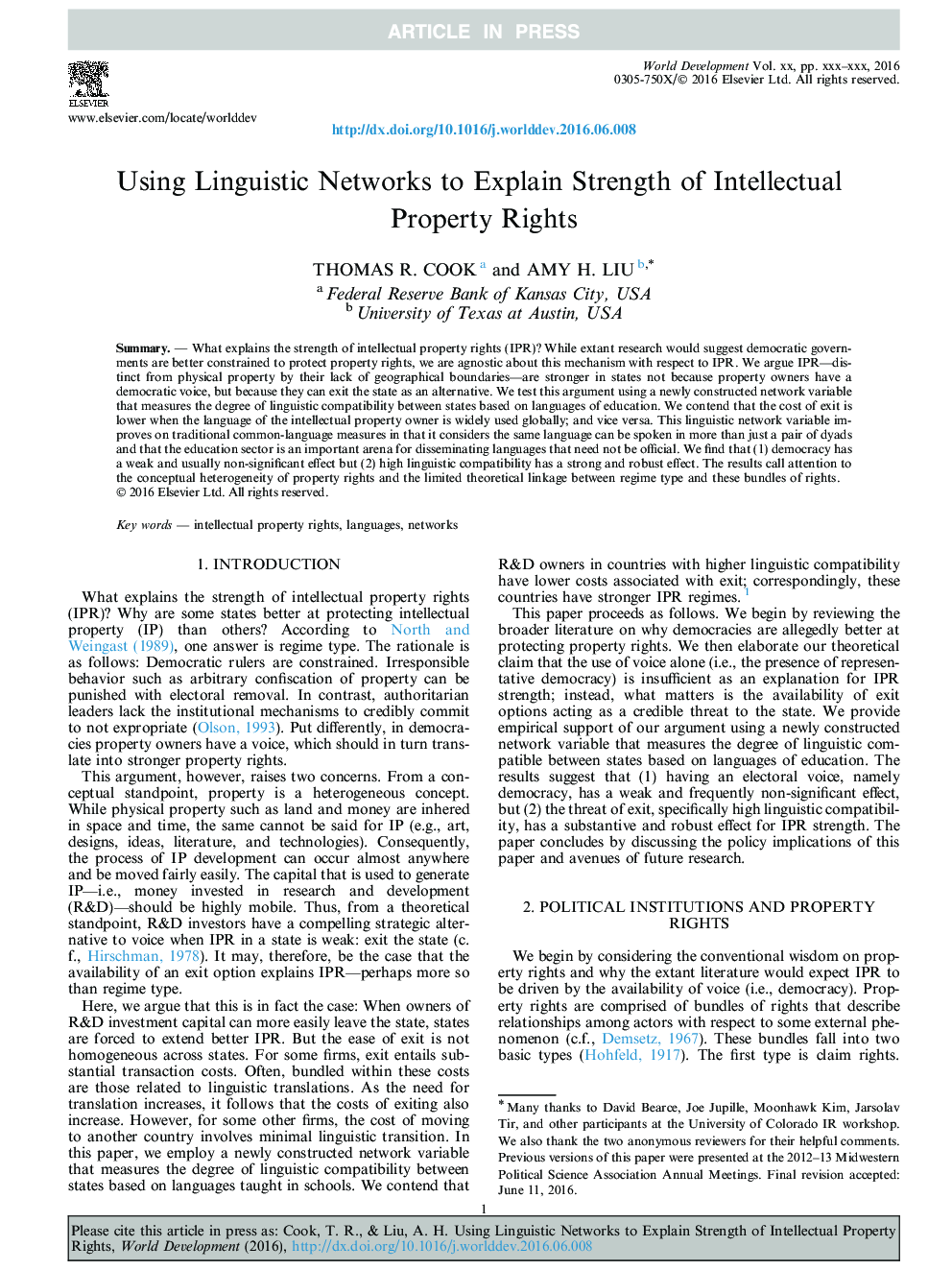| کد مقاله | کد نشریه | سال انتشار | مقاله انگلیسی | نسخه تمام متن |
|---|---|---|---|---|
| 7392393 | 1481131 | 2016 | 11 صفحه PDF | دانلود رایگان |
عنوان انگلیسی مقاله ISI
Using Linguistic Networks to Explain Strength of Intellectual Property Rights
ترجمه فارسی عنوان
استفاده از زبان های زبانی برای توضیح قدرت حقوق مالکیت معنوی
دانلود مقاله + سفارش ترجمه
دانلود مقاله ISI انگلیسی
رایگان برای ایرانیان
کلمات کلیدی
حقوق مالکیت معنوی، زبان ها، شبکه های،
موضوعات مرتبط
علوم انسانی و اجتماعی
اقتصاد، اقتصادسنجی و امور مالی
اقتصاد و اقتصادسنجی
چکیده انگلیسی
What explains the strength of intellectual property rights (IPR)? While extant research would suggest democratic governments are better constrained to protect property rights, we are agnostic about this mechanism with respect to IPR. We argue IPR-distinct from physical property by their lack of geographical boundaries-are stronger in states not because property owners have a democratic voice, but because they can exit the state as an alternative. We test this argument using a newly constructed network variable that measures the degree of linguistic compatibility between states based on languages of education. We contend that the cost of exit is lower when the language of the intellectual property owner is widely used globally; and vice versa. This linguistic network variable improves on traditional common-language measures in that it considers the same language can be spoken in more than just a pair of dyads and that the education sector is an important arena for disseminating languages that need not be official. We find that (1) democracy has a weak and usually non-significant effect but (2) high linguistic compatibility has a strong and robust effect. The results call attention to the conceptual heterogeneity of property rights and the limited theoretical linkage between regime type and these bundles of rights.
ناشر
Database: Elsevier - ScienceDirect (ساینس دایرکت)
Journal: World Development - Volume 87, November 2016, Pages 128-138
Journal: World Development - Volume 87, November 2016, Pages 128-138
نویسندگان
Thomas R. Cook, Amy H. Liu,
